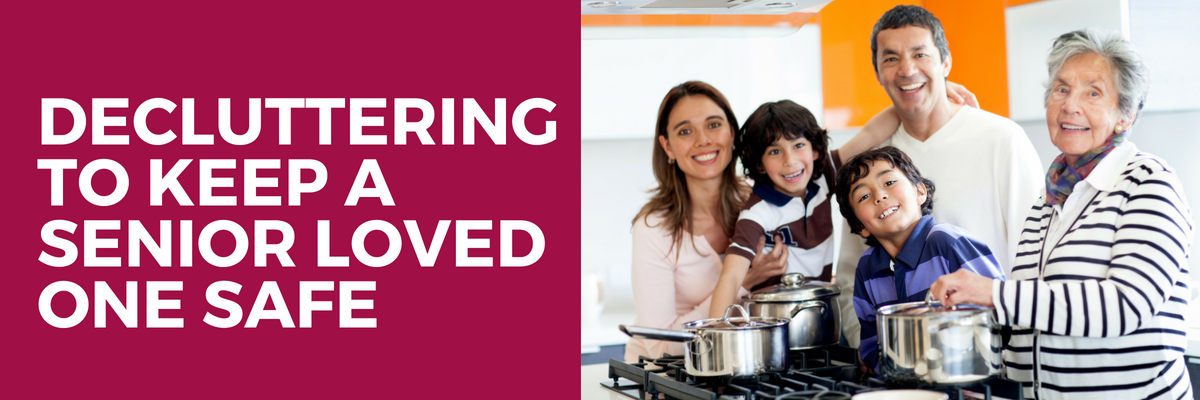
The longer we stay in a home the more we collect in our homes. Gifts from loved ones, keepsakes, photos, furniture and items with fond memories continue to be acquired and admired. Quite often the memories attached to what we have is more powerful than the item itself.
As senior loved one’s age, less of the home is “lived in,” but the clutter from years in a home still remains and may cause issues. In ourparents.com article Dealing with the Dangers of Clutter, Caring Transitions President Chris Seman explains exactly what those dangers are in the "average American home with over 300,000 items... Some of the more obvious dangers are the risks for personal injury, such as trips and falls. Those with cluttered homes frequently pay to replace household items because they are more vulnerable to being crushed, broken, or lost. Structural damage can also occur due to vents being blocked, obstructing airflow, causing moisture, and creating costly damage from mold.”
Since June is National Safety Month, we want to give a few tips to help you declutter a senior friend or loved one’s living space:
Remove any slip or trip hazards from the floor.
As we age, it can be a bit more difficult to move. It’s important to remove items like worn rugs, excess furniture, exposed cords, or any other objects that obscure a clear moving path.
Keep high use items in a convenient place.
All of us take comfort in very specific items. It could be a favorite blanket, a coffee mug, a cozy sweater. Whatever “it” is, the best way for a senior to enjoy it is in a handy way that does not require a constant search to use it. This means making the most used areas of the home a priority for decluttering and organizing, while choosing clear dedicated spaces for the items we love and use most. The more convenient the placement the better.
Be sure to keep the home bright and open.
According to the American Academy of Opthamology, “seniors may have both a higher need for natural light and a harder time getting it than do younger people. A part of the natural light spectrum, called blue light, is important for our ability to maintain healthy bodily rhythms… like circadian rhythms or biorhythms.” Decluttering can open up a room and give a brighter lighter feel. Some experts even suggest using brighter bulbs, hanging colorful artwork, or opening windows, curtains, and blinds to let more natural light in as well.
Decluttering will not happen overnight, but the process is essential to a senior’s quality of life. “Simple organization may make it easier to locate and pay household bills, or open up walkways so you can safely navigate living space,” says Seman. “Eliminating clutter can also help increase the value of a home and make it more marketable, and can reduce moving and packing expenses” should the senior ever decide to move.
In many cases, it takes the average family 9 to 18 months to completely declutter the home. No matter how you begin, remember the great benefits of decluttering for your senior loved one or friend. Hopefully this article will help you get started.
Overwhelmed with the thought of decluttering on your own? We can help. Find out how here.
Sources
http://dailycaring.com/declutter-older-adults-living-space/
https://www.ourparents.com/care-topics/2017/07/25/dealing-with-the-dangers-of-clutter/
https://www.aao.org/eye-health/tips-prevention/natural-light-sleep-health
https://www.nsc.org/work-safety/get-involved/national-safety-month